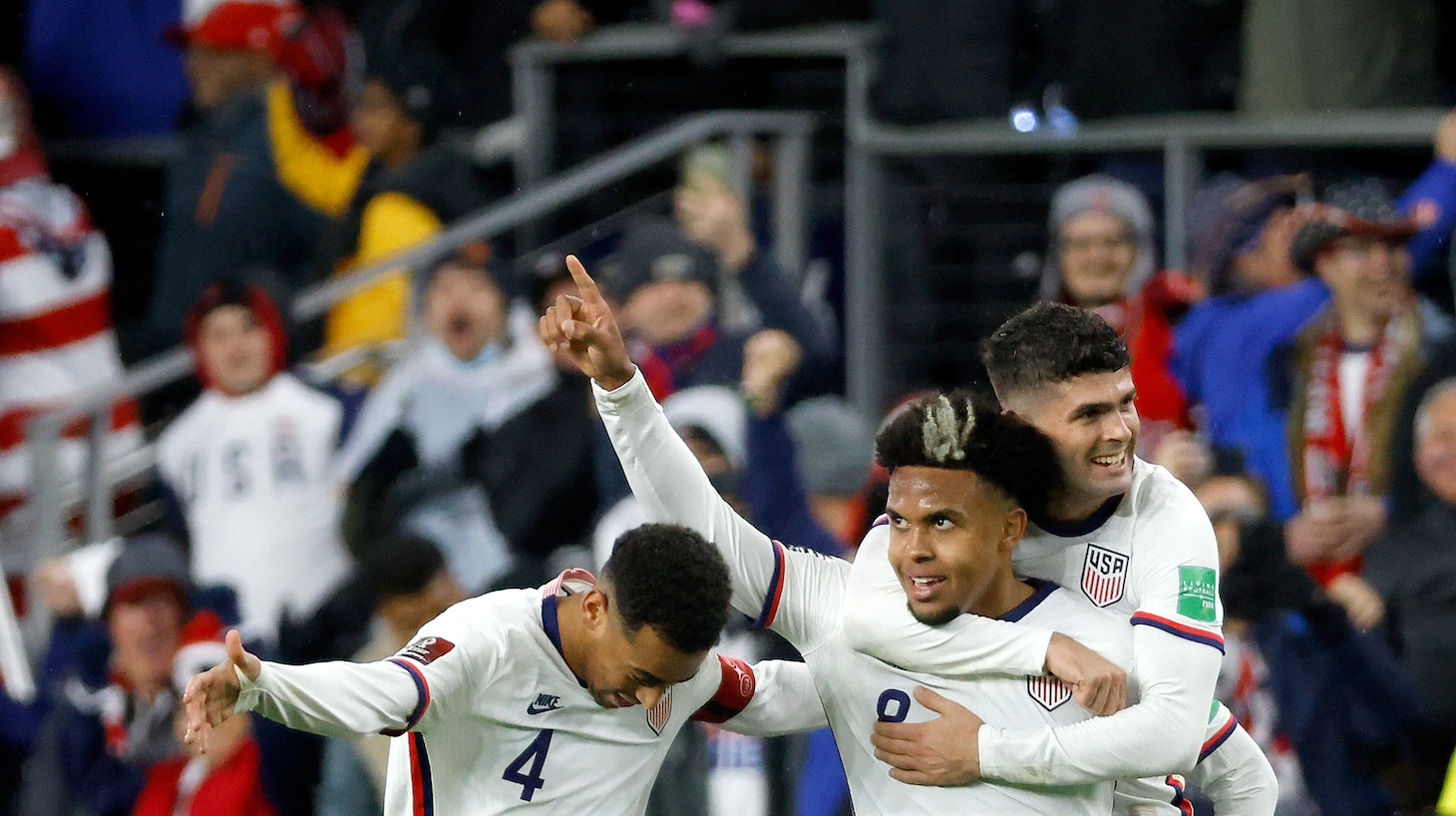The first two, you could've maybe quibbled with. When the U.S. beat Mexico in the first of their trio of matchups this year, in the Nations League final back in June, you could've argued that the contest was a glorified friendly and the play was so ugly on both sides that the result, though exhilarating, wasn't worth taking much from. When the U.S. repeated the feat, this time in August's Gold Cup final, you could've pointed out that no one actually gives a shit about the Gold Cup and neither country brought many A-team players and in reality Mexico outplayed the U.S. despite the defeat, and so that match wasn't worth taking much from either. But after Friday's World Cup qualifier when, in a match with real stakes, a more or less full strength USMNT took on a more or less full strength Mexico and proceeded to smack around their shit-talking southern neighbor with a verve and assuredness that far outstripped anything that happened in the previous two meetings, even the biggest skeptics have to admit that the U.S. is just really fucking good at soccer right now.
There was so much to be encouraged about in the USMNT's performance, both collectively and individually. The team displayed an impressive tactical versatility. In the first half, the Americans sought to control the game through possession, and though Mexico did put together a few threatening counters during that span, the U.S. proved that it can dictate the pace of a match against good opposition by hogging the ball. In the second half, the U.S. switched to more of a counter-attacking game, and was even more effective for it. Manager Gregg Berhalter has built a team comfortable either with or without the ball, and he showed real savviness by make in-game adjustments that wound up working very well. (You could see that not only in the switch from possession-mindedness to counter-mindedness, but also in the second-half tweak to have Ricardo Pepi stalk Edson Álvarez around and slam the door every time Mexico tried to get its best wheelman into the driver's seat.) On top of that, the coach implemented a high press that regularly stymied Mexico's buildup play. All of these tactical flourishes bode well for the Americans' prospects against the teams of varying styles and quality that they will face along the way to and at the World Cup.
While having a smart manager is nice, it all comes down to the players. And the players looked fantastic. Christian Pulisic and Weston McKennie scored the two goals, which was unsurprising. Those two are the team's biggest players, who play for two of the best clubs in Europe, and who have shown time and again that they are up for the challenge of leading the USMNT to glory. The best thing you can say about them is that Friday's win was just more of the same.
Rather than focus on those two known quantities, I'd like to point out two other, less-heralded players who had great games. The first was Tim Weah, who to me was the best American on the pitch. His dogged work in and out of possession, his ability to consistently beat defenders off the dribble and send in a dangerous pass, and his fluid understanding of where the team needs him to be all make him an extremely valuable addition to the forward line. For as many talented attackers as the U.S. has at the moment, it doesn't have a no-brainer solution to the right wing position. Weah isn't a natural right-winger himself, but his outing against Mexico made the strong case that he might be the team's best option there.
Tim Weah vs Mexico (11/12/21)
— FalseFullback (@FalseFullback2) November 13, 2021
pic.twitter.com/llID2X09Yr
The other impressive performer who deserves a shout out is Yunus Musah. The USMNT doesn't have much creative passing prowess on its roster, so it has to make and take advantage of space in other ways. Musah's dribbling is one of the most creative forces the team has. The 18-year-old is so good at evading pressure simply by running through it, and his ball carrying against Mexico was a masterclass in the creative possibilities of central dribbling.
Yunus Musah vs Mexico (11/12/21)
— FalseFullback (@FalseFullback2) November 13, 2021
pic.twitter.com/O28mhbhIdC
The 2–0 win on Friday put the U.S. atop the CONCACAF World Cup qualifying table at the process's halfway mark. American fans are understandably skittish about qualifying after last cycle's disaster, but at this point we shouldn't have to worry anymore about whether the U.S. will make it to Qatar next year. Still, how the U.S. gets there is incredibly important, as it will go a long way to determining what the Americans will be able to do at the actual event. And that's why the Mexico game was so special. No longer should the U.S. be content playing Mexico tight or even squeaking out a narrow win. Now we know that the U.S. can go into any match against their biggest foes expecting to win and to do so in commanding fashion. After all, once is chance, twice is coincidence, but three times is a pattern.






